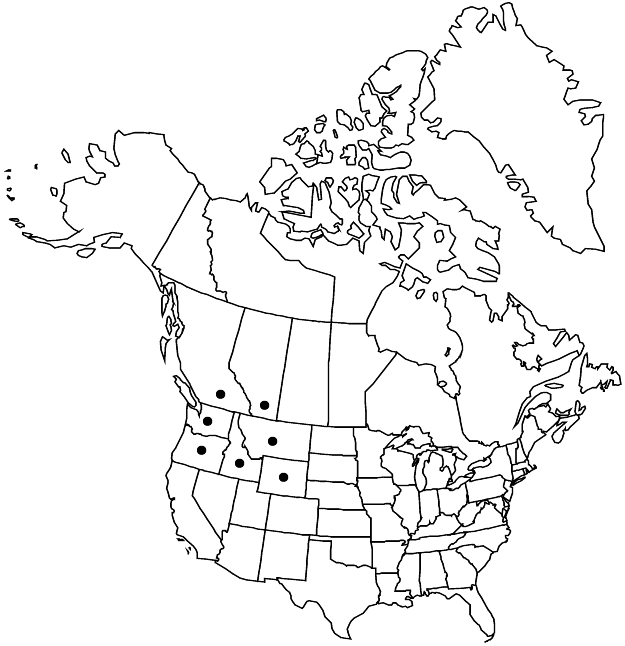Difference between revisions of "Eriogonum flavum var. piperi"
Contr. W. Bot. 11: 7. 1903.
FNA>Volume Importer |
FNA>Volume Importer |
||
| Line 8: | Line 8: | ||
}} | }} | ||
|common_names=Piper’s wild buckwheat | |common_names=Piper’s wild buckwheat | ||
| − | |basionyms={{Treatment/ID/ | + | |basionyms={{Treatment/ID/Basionym |
|name=Eriogonum piperi | |name=Eriogonum piperi | ||
|authority=Greene | |authority=Greene | ||
| + | |publication_title=Pittonia | ||
| + | |publication_place=3: 263. 1898 | ||
}} | }} | ||
|synonyms={{Treatment/ID/Synonym | |synonyms={{Treatment/ID/Synonym | ||
| Line 30: | Line 32: | ||
|elevation=(700-)1200-2800(-3200) m | |elevation=(700-)1200-2800(-3200) m | ||
|distribution=Alta.;B.C.;Idaho;Mont.;Oreg.;Wash.;Wyo. | |distribution=Alta.;B.C.;Idaho;Mont.;Oreg.;Wash.;Wyo. | ||
| − | |discussion=<p>Variety piperi is the common and widespread phase of the species, found mainly west of the Continental Divide in southern Alberta, southern British Columbia, eastern Washington, northern Idaho, and western Montana south into northeastern Oregon and northwestern Wyoming. It is only slightly variable, the major exception being depauperate individuals at high elevations in harsh exposures; these have been recognized by some as var. polyphyllum. The length of the stipelike base shortens from west to east, but only rarely are individuals in Montana troublesome to place either here or in <i></i>var.<i> flavum</i>. The plants do well in cultivation and are now widely available.</p> | + | |discussion=<p>Variety piperi is the common and widespread phase of the species, found mainly west of the Continental Divide in southern Alberta, southern British Columbia, eastern Washington, northern Idaho, and western Montana south into northeastern Oregon and northwestern Wyoming. It is only slightly variable, the major exception being depauperate individuals at high elevations in harsh exposures; these have been recognized by some as var. polyphyllum. The length of the stipelike base shortens from west to east, but only rarely are individuals in Montana troublesome to place either here or in <i></i></i>var.<i><i> flavum</i>. The plants do well in cultivation and are now widely available.</p> |
|tables= | |tables= | ||
|references= | |references= | ||
| Line 54: | Line 56: | ||
|publication year=1903 | |publication year=1903 | ||
|special status= | |special status= | ||
| − | |source xml=https://jpend@bitbucket.org/aafc-mbb/fna-data-curation.git/src/ | + | |source xml=https://jpend@bitbucket.org/aafc-mbb/fna-data-curation.git/src/f6b125a955440c0872999024f038d74684f65921/coarse_grained_fna_xml/V5/V5_767.xml |
|subfamily=Polygonaceae subfam. Eriogonoideae | |subfamily=Polygonaceae subfam. Eriogonoideae | ||
|genus=Eriogonum | |genus=Eriogonum | ||
Revision as of 21:10, 24 September 2019
Plants loose to compact mats, 1–6 dm wide. Aerial flowering stems mostly erect, (0.5–)1–2(–3) dm. Leaf blades linear-oblanceolate to oblong or narrowly elliptic, 2–7(–9) × 0.3–0.8(–1) cm, densely tomentose abaxially, tomentose to floccose or glabrous and greenish adaxially. Inflorescences subcapitate to umbellate; branches 0.2–1 cm. Involucres usually turbinate, 4–9 mm. Flowers (4–)5–7 mm, including 1–1.5 mm stipelike base; perianth pale to bright yellow. 2n = 76, 80.
Phenology: Flowering Jun–Sep.
Habitat: Sandy to gravelly flats and slopes in mixed grassland and sagebrush communities, and in montane to subalpine conifer woodlands
Elevation: (700-)1200-2800(-3200) m
Distribution

Alta., B.C., Idaho, Mont., Oreg., Wash., Wyo.
Discussion
Variety piperi is the common and widespread phase of the species, found mainly west of the Continental Divide in southern Alberta, southern British Columbia, eastern Washington, northern Idaho, and western Montana south into northeastern Oregon and northwestern Wyoming. It is only slightly variable, the major exception being depauperate individuals at high elevations in harsh exposures; these have been recognized by some as var. polyphyllum. The length of the stipelike base shortens from west to east, but only rarely are individuals in Montana troublesome to place either here or in var. flavum. The plants do well in cultivation and are now widely available.
Selected References
None.